275 MacLaren Street, Ottawa, ON K2P 0L9
The Urban Aboriginal Service Delivery Landscape: Themes, Trends, Gaps and Prospects National Report Phase 1 and Phase 1
The Urban Aboriginal Knowledge Network, in partnership with the National Association of Friendship Centres, completed a multi-site research project to assess the urban Indigenous service delivery landscape. This research project was completed in two phases: the first was a national overview of the existing services and organizations for urban Indigenous communities and the second is an in depth examination of urban Indigenous organizations and services at a regional level.
Phase 1 UAKN National Report Background:
This report represents the first phase of the Urban Aboriginal Knowledge Network’s National Project on The Urban Aboriginal Service Delivery Landscape. Phase 2 of the study, led by each of the UAKN’s four regional research centres, will involve a more in-depth study in the regions, including interviews and community perspectives from the ground. In terms of community-based values, the inventory and theme framework for the Phase 1 project was developed from the perspective of Indigenous-based research frameworks and paradigms. Phase 1 of the project presented here addressed four key areas including:
Phase 2 UAKN National Report Background:
This report is the overview of phase two and summarizes the reports submitted by each UAKN region, Western, Prairie, Central and Atlantic. Each region consists of two provinces, with the exception of the Atlantic region. The project’s main goals were to:
UAKN National Project Regional Reports:
Each regional research centre submitted their own regional report for Phase 2 of the national project. These reports can be viewed on the side bar on this page.Each region consists of two provinces, with the exception of the Atlantic region. It should be noted that the Prairie region submitted two reports, one for each province. The goal of this research was to understand this vast and complex terrain, reporting on service gaps, innovations, economic participation, and organizational relationships. The committee for each region organized their own research project, based upon the suggested themes, and proceeded to interview individuals representing different Indigenous service organizations in their area. The specifics of these research projects are contained within the regional reports.Each regional report tells the story of the challenges, innovations and successes of urban Indigenous organizations. Though the regions vary in their histories, landscapes and context, many of the findings reveal common themes on the need for improvement in services for full economic participation to be realized.